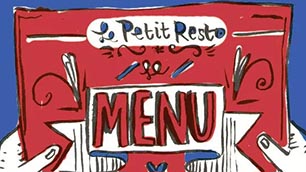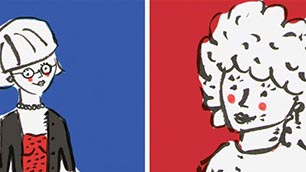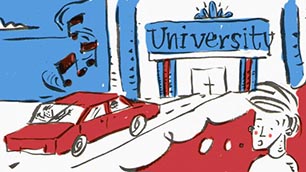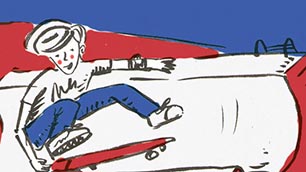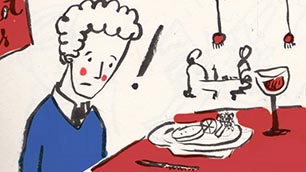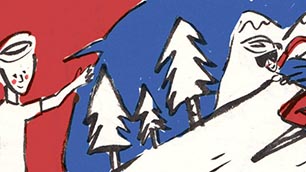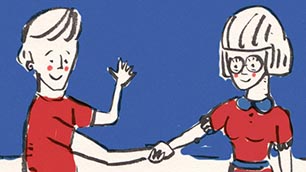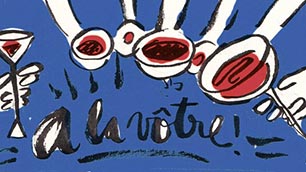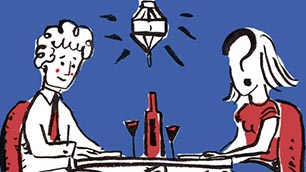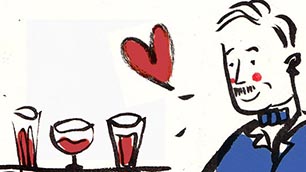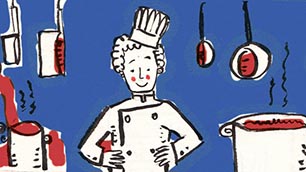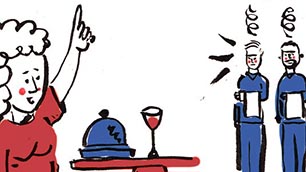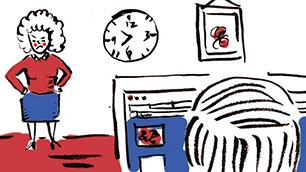So far, we have learned simple and short expressions. Today, we’ll learn a seemingly long and difficult one. The French use a quite complicated expression to ask the question "What is that?" or “What is it?” They say: Qu’est-ce que c’est ? Let’s break it down.
- Qu’est : the word que means 'what' or ‘that’ in English. With the verb form est (is), que becomes qu’est. That’s l'élision that we already know about: que + est = qu’est.
-ce : the syllable ce means ‘it’, que : this one means ‘that’, and c’est. Together with the verb form est (is), ce becomes c’est. That’s L'élision again: ce + est = c’est.
The question literally translates: what is it that it is?’ Regardless of whether this is a complicated thing to say, for now anyway, you should ask this question whenever you don't know the French meaning of something, or you want to ask for a certain thing in French.
The answers to Qu’est-ce que c’est ? are the following:
- to describe or introduce singular nouns: c’est which means ‘this is,’ ‘that is,’ or ‘it is.’ Its negative form is ce n’est pas, ‘this is not’ or ‘it is not.’
- to describe and introduce plural nouns: ce sont which means ‘these are,’ those are,’ or ‘they are.’ Its negative form is ce ne sont pas, ‘these are not’ or ‘those are not.’
Exemples:
- Qu’est-ce que c’est ?
- C’est la Tour Eiffel !
- What is this?
- It’s the Eiffel Tower!
Ce n’est pas la première fois qu’il va en France.
It’s not the first time he goes to France.
Ce ne sont pas les bons ingrédients pour la recette.
These are not the right ingredients for the recipe.
- Tu aimes Paris ?
- Paris ? Oui ! C’est beau.
- Do you like Paris?
- Paris ? Yes ! It’s beautiful.
- Qu’est : the word que means 'what' or ‘that’ in English. With the verb form est (is), que becomes qu’est. That’s l'élision that we already know about: que + est = qu’est.
-ce : the syllable ce means ‘it’, que : this one means ‘that’, and c’est. Together with the verb form est (is), ce becomes c’est. That’s L'élision again: ce + est = c’est.
The question literally translates: what is it that it is?’ Regardless of whether this is a complicated thing to say, for now anyway, you should ask this question whenever you don't know the French meaning of something, or you want to ask for a certain thing in French.
The answers to Qu’est-ce que c’est ? are the following:
- to describe or introduce singular nouns: c’est which means ‘this is,’ ‘that is,’ or ‘it is.’ Its negative form is ce n’est pas, ‘this is not’ or ‘it is not.’
- to describe and introduce plural nouns: ce sont which means ‘these are,’ those are,’ or ‘they are.’ Its negative form is ce ne sont pas, ‘these are not’ or ‘those are not.’
Exemples:
- Qu’est-ce que c’est ?
- C’est la Tour Eiffel !
- What is this?
- It’s the Eiffel Tower!
Ce n’est pas la première fois qu’il va en France.
It’s not the first time he goes to France.
Ce ne sont pas les bons ingrédients pour la recette.
These are not the right ingredients for the recipe.
- Tu aimes Paris ?
- Paris ? Oui ! C’est beau.
- Do you like Paris?
- Paris ? Yes ! It’s beautiful.




